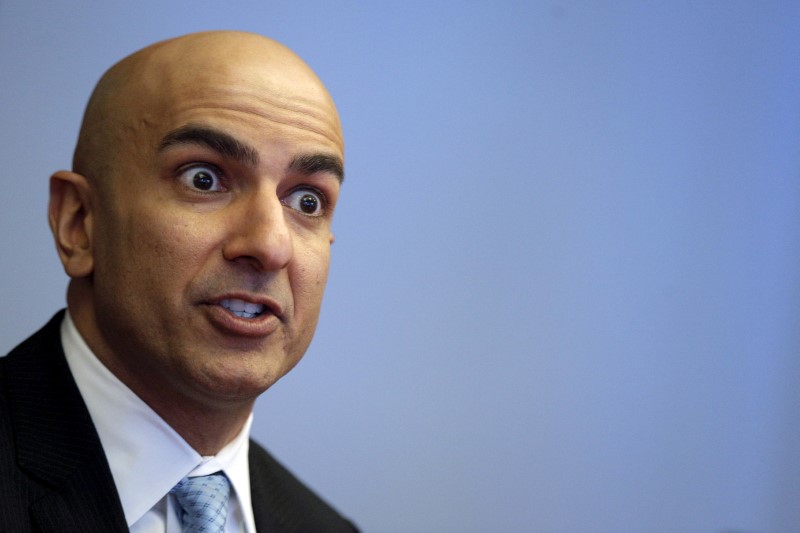By Dan Freed
(Reuters) - Minneapolis Federal Reserve President Neel Kashkari unveiled a plan on Wednesday to prevent future government bailouts by forcing the largest U.S. banks to hold so much capital that they would probably decide to break themselves up.
Kashkari's plan would also penalize large asset managers, with the idea that so-called "shadow banks" can create systemic risks similar to that of big banks.
"We expect that institutions whose size doesn't meaningfully benefit their customers will be forced to break themselves up," the Minneapolis Fed said in a summary of its plan.
The plan, which would double the amount of loss-absorbing equity capital for large U.S. banks and impose a new tax on hedge funds and other asset managers, is sure to face fierce opposition from Wall Street.
It may also be a tough sell for policymakers who have already imposed rules intended to eliminate the notion that some banks are "too big to fail," or TBTF.
However, its prospects may be better under the administration of President-elect Donald Trump and the new Congress.
Trump has been critical of Wall Street, and indicated he would support dismantling 2010 financial crisis legislation known as Dodd-Frank, but it is not clear whether he would support Kashkari's approach.
However, lawmakers such as Texas Rep. Jeb Hensarling, who runs the House Financial Services Committee, have also argued for ratcheting up capital requirements to a level that would prompt big banks to split apart. Senate Banking Committee members Sherrod Brown, a Democrat, and David Vitter, a Republican, have also introduced legislation seeking to raise capital requirements.
"I believe the biggest banks are still TBTF and continue to pose a significant, ongoing risk to our economy," Kashkari said in planned remarks he was to deliver at the Economic Club of New York on Wednesday.
Kashkari has made "too big to fail" his signature issue since being appointed head of the Minneapolis Fed in January. He has held symposiums on the topic to get views from policymakers, academics and industry leaders about the best way to prevent future bailouts.
A former Goldman Sachs (N:GS) banker who administered the U.S. Treasury Department's bailout program during the financial crisis that erupted in 2008, Kashkari has positioned himself as a reformed Wall Street banker who knows best how to fix the problem. He also ran for governor in California in 2014, but has declined to comment on future political ambitions.
Kashkari's initial comments about breaking up big banks earlier this year drew praise from then-presidential candidate Bernie Sanders, a senator from Vermont.
Dodd-Frank advocates have argued that it will prevent future bank bailouts. But the Minneapolis Fed proposal argues there is still a 67 percent chance of one over the next 100 years. Kashkari's plan would reduce the likelihood of a future financial crisis over the next 100 years to roughly 9 percent, according to the proposal.
The increased equity requirement for banks would replace an existing requirement that allows banks to use equity and long-term debt.
The plan would also require the Treasury Secretary to certify that the banks subject to the rule are not "systemically important." Otherwise, they would face even tougher capital requirements.
Banks subject to the rule will have $250 billion in assets, a group that would include Bank of America Corp (N:BAC), JPMorgan Chase & Co (N:JPM), Wells Fargo & CO (N:WFC) and Citigroup (N:C), among others.
A group of so-called "shadow banks," with more than $50 billion in assets, like Blackrock Inc (N:BLK) would face a tax of at least 1.2 percent on their debt. If the Treasury indicates any of those firms are systemically important, the tax would rise to 2.2 percent.
"The tax would effectively make the cost of funds roughly equivalent between large banks and nonbanks," according to the plan, which was released Wednesday.
Banks with less than $10 billion in assets would see looser regulations, since they do not pose a threat to the U.S. economy, Kashkari said. Insurers would also escape the rule, because their funding model is different.
